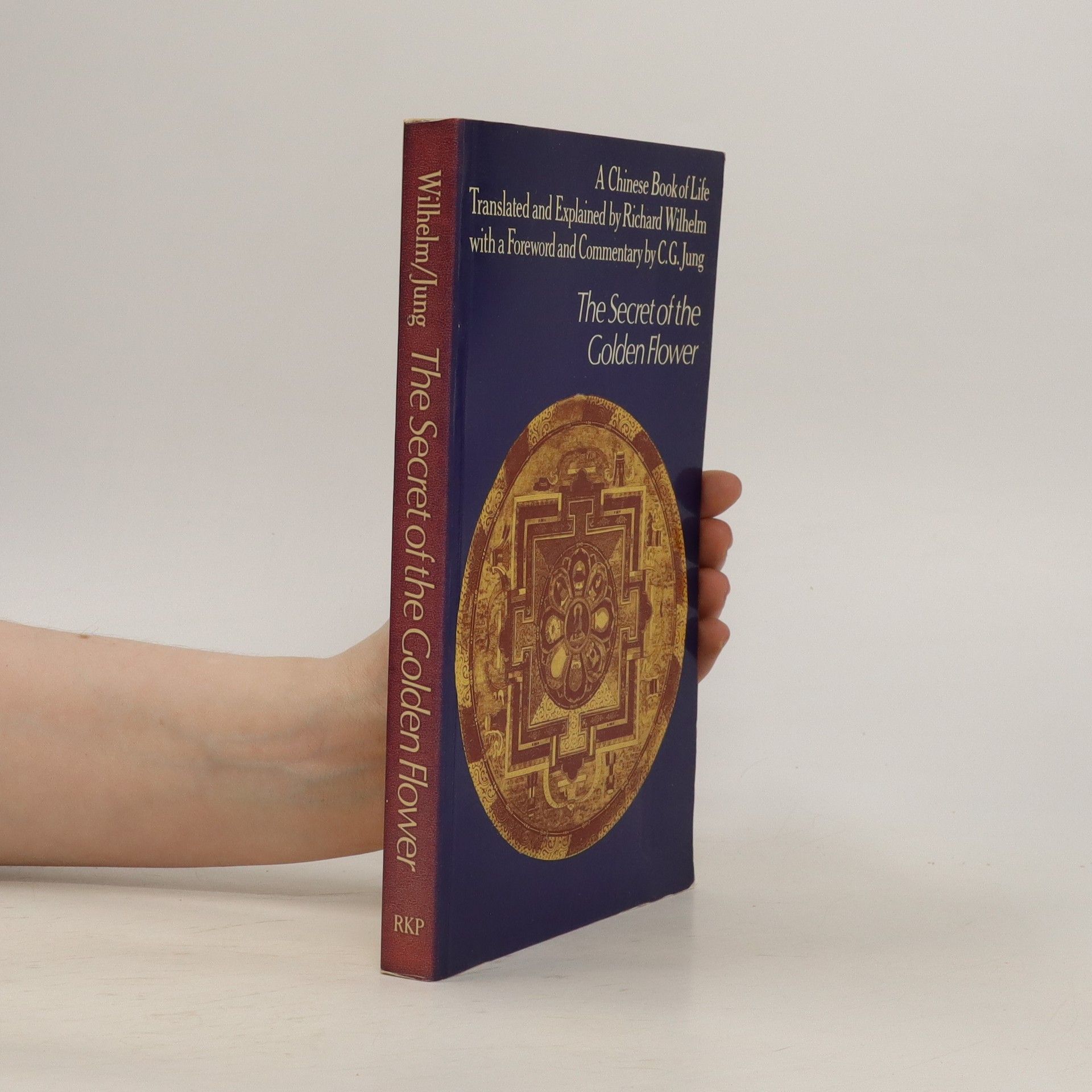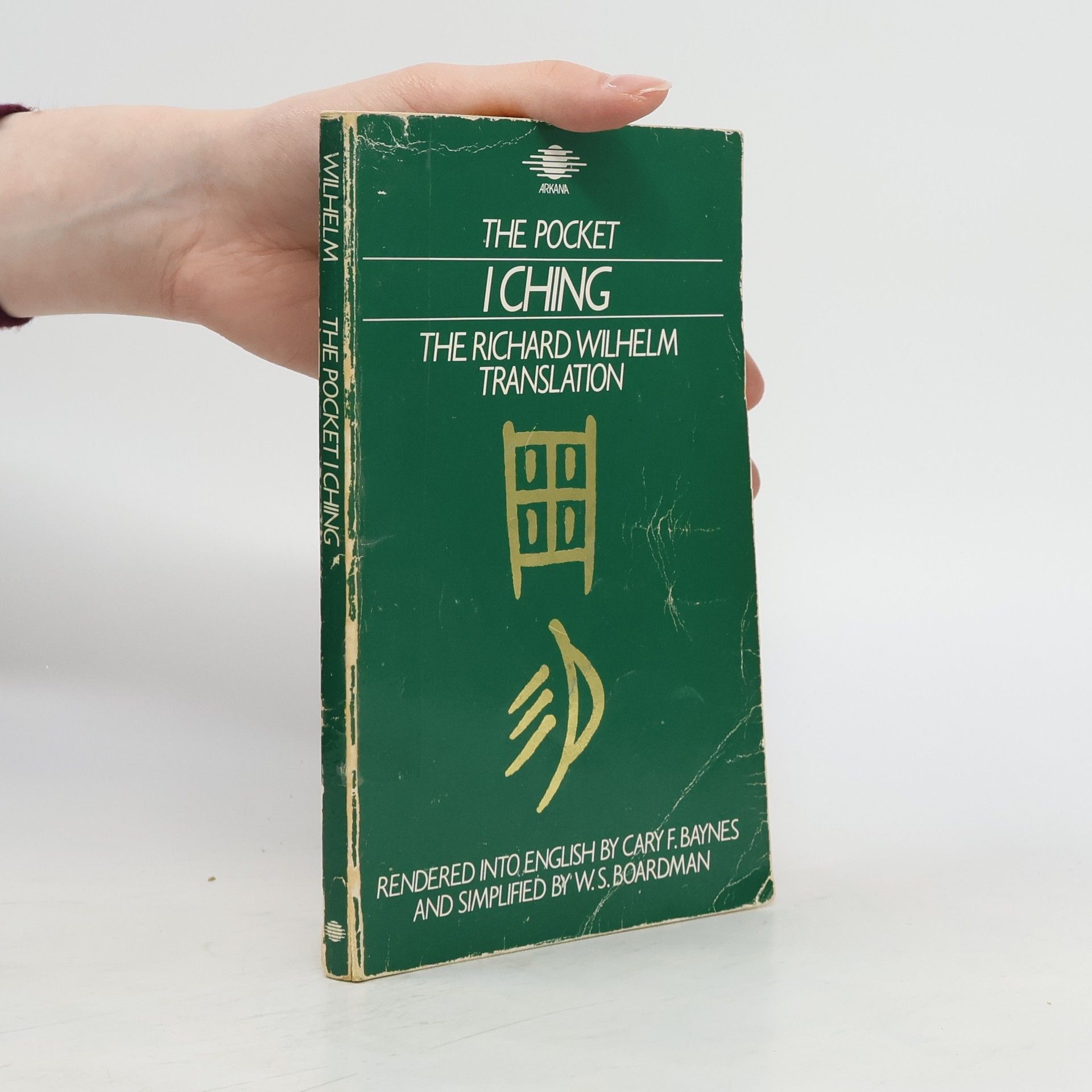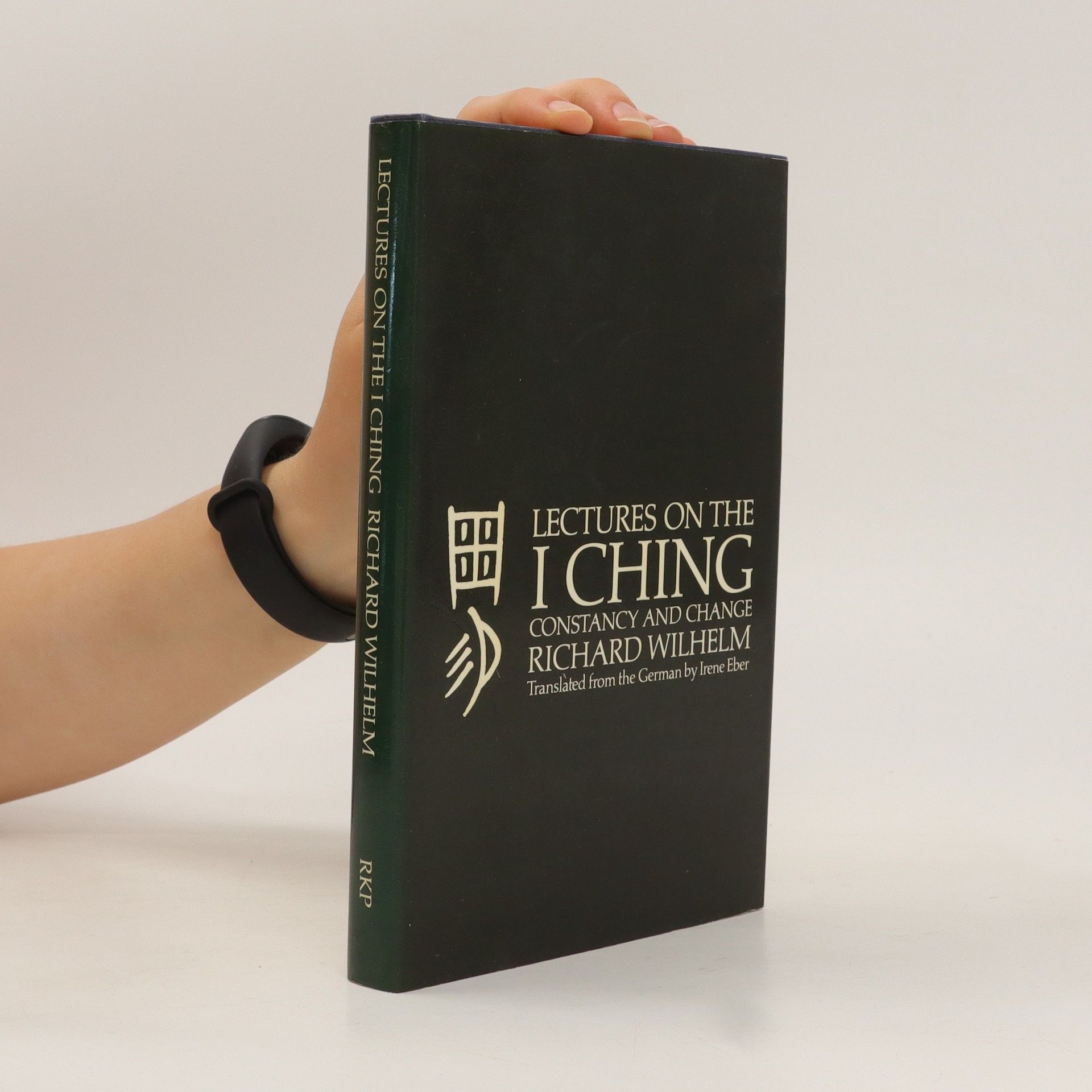I Ching or Book of Changes
- 816 pages
- 29 hours of reading
Covers I Ching - a book of oracles containing the whole of human experience.
Richard Wilhelm was a dedicated German translator who brought significant Chinese philosophical works into German. His translations, renowned for their depth and precision, have been instrumental in introducing these profound ideas to a wider global audience through subsequent translations into other major languages. His rendering of the I Ching remains a benchmark of excellence, as does his version of The Secret of the Golden Flower. Both these influential translations are enriched by introductions from his personal friend, the Swiss psychologist Carl Jung, underscoring their intellectual significance.







Covers I Ching - a book of oracles containing the whole of human experience.
Wilhelm frequently wrote & lectured on the Book of Changes, supplying guidelines to its ideas & ways of thinking. Collected here are four lectures he gave between 1926 & 1929. The lectures are significant not only for what they reveal about Chinese tradition & culture, but also for their reflections of the scholarly & cultural milieu prevalent in Germany during that time.
This collection features a diverse array of oriental fairy tales, offering a rich tapestry of stories for American readers. Children will be captivated by the vibrant colors and fantastical elements, while older readers will find depth and enjoyment in the narratives. Among the poetic tales are "The Flower-Elves," "The Lady of the Moon," and "The Herd Boy and the Weaving Maiden," which evoke a sense of beauty and wonder. Other stories, like "How Three Heroes Came By Their Deaths Because Of Two Peaches," provide a dramatic glimpse into the Chinese age of Chivalry. The collection also includes quasi-religious dramas such as "The Ape Sun Wu Kung" and "Notcha," alongside the intriguing sorceries of "The Kindly Magician." Additionally, delightful ghost stories like "A Night on the Battlefield" and "The Ghost Who Was Foiled" offer happy endings that charm readers of all ages. This work is a reproduction of an important historical text, preserved and restored by Forgotten Books, which utilizes advanced technology to maintain the original format while addressing imperfections. Any remaining flaws are intentionally retained to honor the historical integrity of the collection.
An elegantly packaged new edition of a classic Chinese folk tale collection that responds to the contemporary fascination with the ancient culture of the Far East.
"Tao Te Ching," also commonly known as "Lao Tzu," is perhaps the most important of Chinese classical texts, with an unparalleled influence on Chinese thought. This bilingual edition consists of two parts. The English text in Part One is a reprint of the earlier translation of the so-called "Wang Pi" text, first published by Penguin Books in 1963. Part Two is the fresh translation of a text which is a conflation of two manuscripts of the "Lao Tzu," dating at the latest from the early Western Han and discovered at Ma Wang Tui in December 1973. The result is a text with a fuller use of particles, free from the scribal errors and editorial tampering of subsequent ages.
Im Vorwort wird betont, dass die alte Vorstellung, in China nach Jahrhunderten zu rechnen, nicht mehr zutrifft. Das Leben in China entwickelt sich heute rasant, mit täglichen Ereignissen und Entwicklungen, die auf das Entstehen einer neuen Welt hindeuten. Diese Transformation hat langsam begonnen, nimmt aber an Geschwindigkeit zu: Altes wird in die Vergessenheit verdrängt, während Neues aus dem Nichts emporsteigt. Der Autor reflektiert über seine fünfundzwanzigjährige Zeit in China, in der er Land und Volk lieben lernte. Diese Jahre waren entscheidend, da sie den Zusammenstoß von Altem und Neuem erlebten. Er hat das alte China gesehen, das für Jahrtausende zu bestehen schien, und den Zusammenbruch miterlebt, aus dem neues Leben erwuchs. Trotz der Veränderungen bleibt die Seele Chinas erkennbar, die sich weiterentwickelt, aber ihre Milde und Ruhe bewahrt hat. Der Autor hofft, dass etwas von dieser Seele dem Leser nahegebracht wird, was den Zweck des Buches erfüllt.